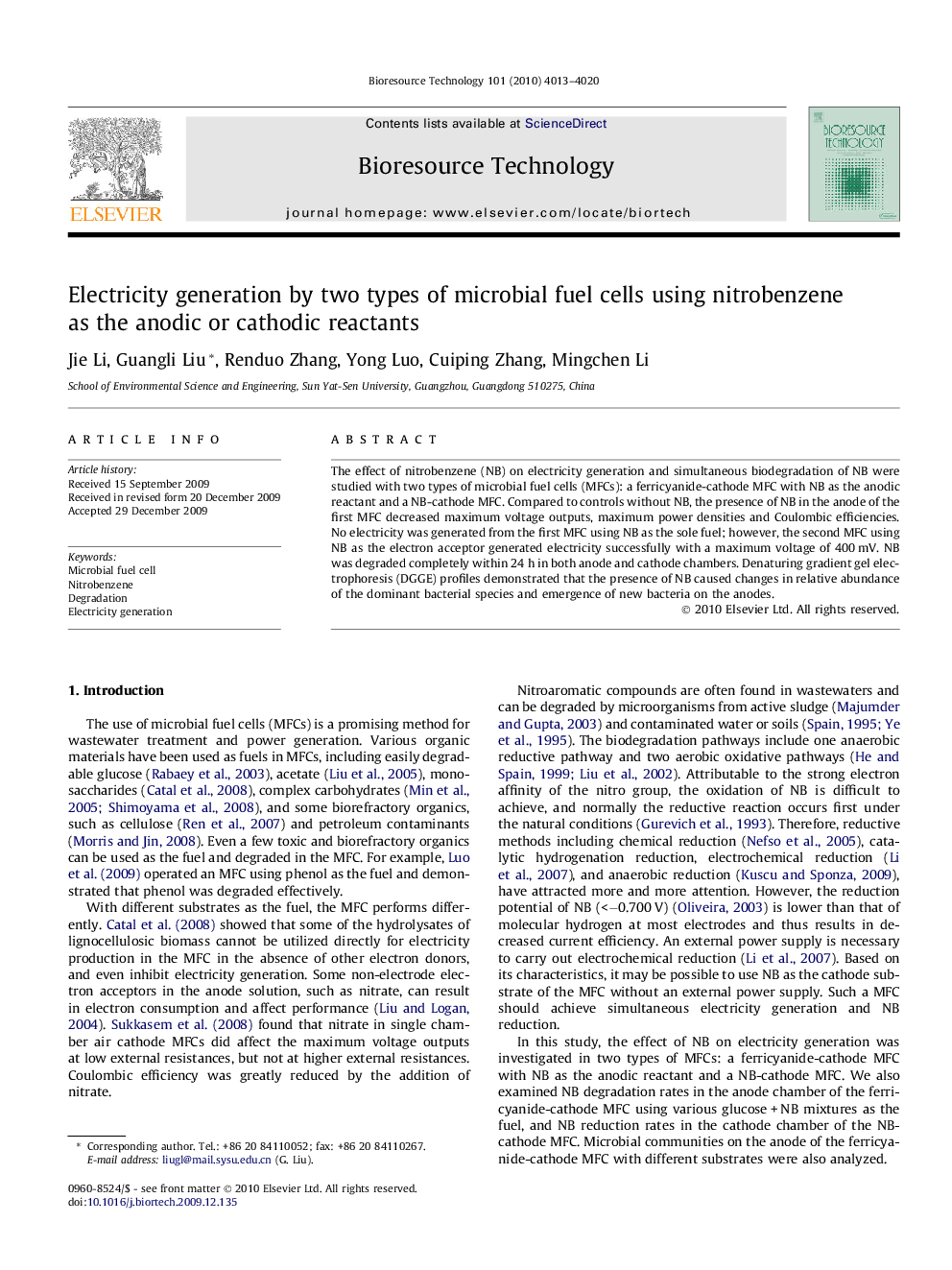| Article ID | Journal | Published Year | Pages | File Type |
|---|---|---|---|---|
| 683552 | Bioresource Technology | 2010 | 8 Pages |
The effect of nitrobenzene (NB) on electricity generation and simultaneous biodegradation of NB were studied with two types of microbial fuel cells (MFCs): a ferricyanide-cathode MFC with NB as the anodic reactant and a NB-cathode MFC. Compared to controls without NB, the presence of NB in the anode of the first MFC decreased maximum voltage outputs, maximum power densities and Coulombic efficiencies. No electricity was generated from the first MFC using NB as the sole fuel; however, the second MFC using NB as the electron acceptor generated electricity successfully with a maximum voltage of 400 mV. NB was degraded completely within 24 h in both anode and cathode chambers. Denaturing gradient gel electrophoresis (DGGE) profiles demonstrated that the presence of NB caused changes in relative abundance of the dominant bacterial species and emergence of new bacteria on the anodes.
